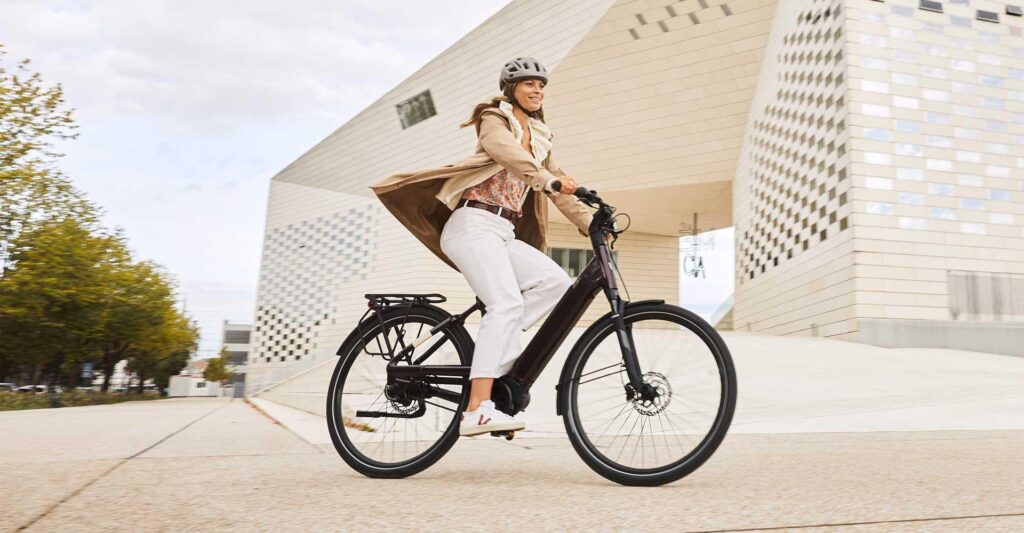What Introducing My Partner to Electric Bikes Taught Me About Women’s Cycling: A Personal Journey into a Growing Movement
As cities around the world increasingly embrace cycling as a sustainable mode of transportation, the electric bike (e-bike) phenomenon is steadily gaining momentum. While initially seen as a trend primarily for competitive cyclists or urban commuters, e-bikes are reshaping the landscape of cycling, particularly for women. My exploration into this booming sector began with a personal mission: introducing my partner to the world of electric biking. What unfolded was not only a journey of discovery for her, but a valuable lesson about the unique challenges and opportunities facing women in cycling. In this article, I delve into how this experience illuminated broader conversations about accessibility, empowerment, and community within the realm of women’s cycling, highlighting the ways e-bikes are becoming a gateway for many women to embrace cycling as an integral part of their lives.
Understanding the Unique Appeal of Electric Bikes for Women Cyclists
Electric bikes are redefining the cycling landscape for women, offering a versatile solution that accommodates diverse lifestyles and preferences. As my partner ventured into the world of cycling with an e-bike, it became clear that these vehicles are not just an alternative mode of transport, but also an empowering choice. The unique attributes of electric bikes, such as their effortless pedaling assistance and enhanced range, make them particularly appealing for women cyclists who may prioritize comfort and practicality. This convenience allows users to tackle longer distances and steeper hills without the intimidation often associated with traditional biking.
What struck me most is how electric bikes foster inclusivity within the cycling community. Women who might once have felt discouraged by physical limitations or heavy traffic can now engage confidently with their surroundings. The advantages of e-bikes include:
- Adaptability: Suitable for various terrains and skill levels.
- Health Benefits: Encourages balanced physical activity without overexertion.
- Style and Design: Often designed with aesthetics and comfort in mind, catering specifically to female cyclists.
Furthermore, e-bikes allow for social interaction, as they enable mixed-level rides-where seasoned cyclists can enjoy a leisurely pace alongside beginners. This promotes camaraderie among different groups, enhancing the overall experience of cycling together.
Challenging Stereotypes: How E-Bikes Empower Female Riders
The rise of electric bicycles is not just transforming transportation but also redefining the dynamics of gender in cycling. E-bikes have emerged as a powerful tool for challenging longstanding stereotypes about women riders. With the addition of pedal assistance, women can tackle longer distances, steep hills, and challenging terrains with confidence, allowing them to embrace cycling as an accessible and enjoyable activity. This increased accessibility is opening up the cycling community, attracting more women into a space traditionally dominated by men.
Moreover, the benefits of e-bikes extend beyond mere convenience. They foster a sense of independence and freedom among female riders that empowers them to reclaim their role in cycling. This shift is visible in various aspects:
- Increased Participation: More women are participating in group rides and events, reshaping the cycling culture.
- Community Building: Women-focused cycling groups are flourishing, creating supportive networks that celebrate inclusivity.
- Confidence and Skill Development: E-bikes allow riders to improve their cycling skills at their own pace, encouraging them to explore new terrains.
To further illustrate the impact of e-bikes on female riders, a recent survey highlighted key findings:
| Aspect | Percentage of Female Riders (E-Bikes) | Percentage of Female Riders (Traditional Bikes) |
|---|---|---|
| Feel More Confident | 82% | 60% |
| Ride More Frequently | 75% | 40% |
| Join Cycling Groups | 68% | 32% |
This data not only reflects a growing trend but also highlights how electric bicycles are instrumental in altering perceptions. As women continue to embrace this exciting mode of transport, they are simultaneously paving the way for future generations to partake in the joys of cycling without the barriers previously associated with it.
Navigating Accessibility: Recommendations for Inclusive Cycling Experiences
As I introduced my partner to the world of cycling through the lens of electric bikes, it became evident that inclusivity in cycling experiences is paramount for broadening participation. It’s crucial to consider the diverse needs of all riders, particularly women, who frequently face unique barriers when accessing cycling opportunities. Addressing factors such as safety, comfort, and social support can help create a welcoming environment. Strategies that can enhance accessibility include:
- Implementing bike-sharing programs that cater specifically to women, with women-friendly design.
- Offering workshops aimed at building confidence in cycling skills and bike maintenance.
- Building more safe and family-friendly routes that prioritize cyclists’ safety.
- Creating partnerships with local community organizations to promote cycling as a viable transportation method for women of all backgrounds.
Furthermore, understanding the importance of electric bikes can’t be overstated. They have the potential to bridge gaps in accessibility by accommodating a range of fitness levels and providing an easier ride for newer cyclists. Recent research has illustrated substantial benefits, as summarized in the table below:
| Benefit | Description |
|---|---|
| Increased Participation | More individuals, including those who may have physical limitations, can enjoy cycling. |
| Distance Coverage | Longer rides become viable, encouraging exploration and adventure. |
| Reduced Fatigue | Assists in combating exhaustion, making cycling more enjoyable and less daunting. |
In Retrospect
In conclusion, introducing my partner to electric bikes not only enhanced her cycling experience but also opened my eyes to the broader implications for women in cycling. The unique advantages that e-bikes offer-ranging from increased accessibility to expanded range-can help to dismantle some of the traditional barriers that women face in the sport. This journey revealed the critical importance of inclusivity and representation in cycling, highlighting the need for more tailored solutions that cater to diverse riders. As the industry evolves, fostering an environment that embraces all cyclists, regardless of gender, will be crucial for the future of cycling culture. The lessons learned from this personal experience exemplify the potential for electric bikes to revolutionize the way women engage with cycling, paving the way for a more equitable and empowered cycling community.











